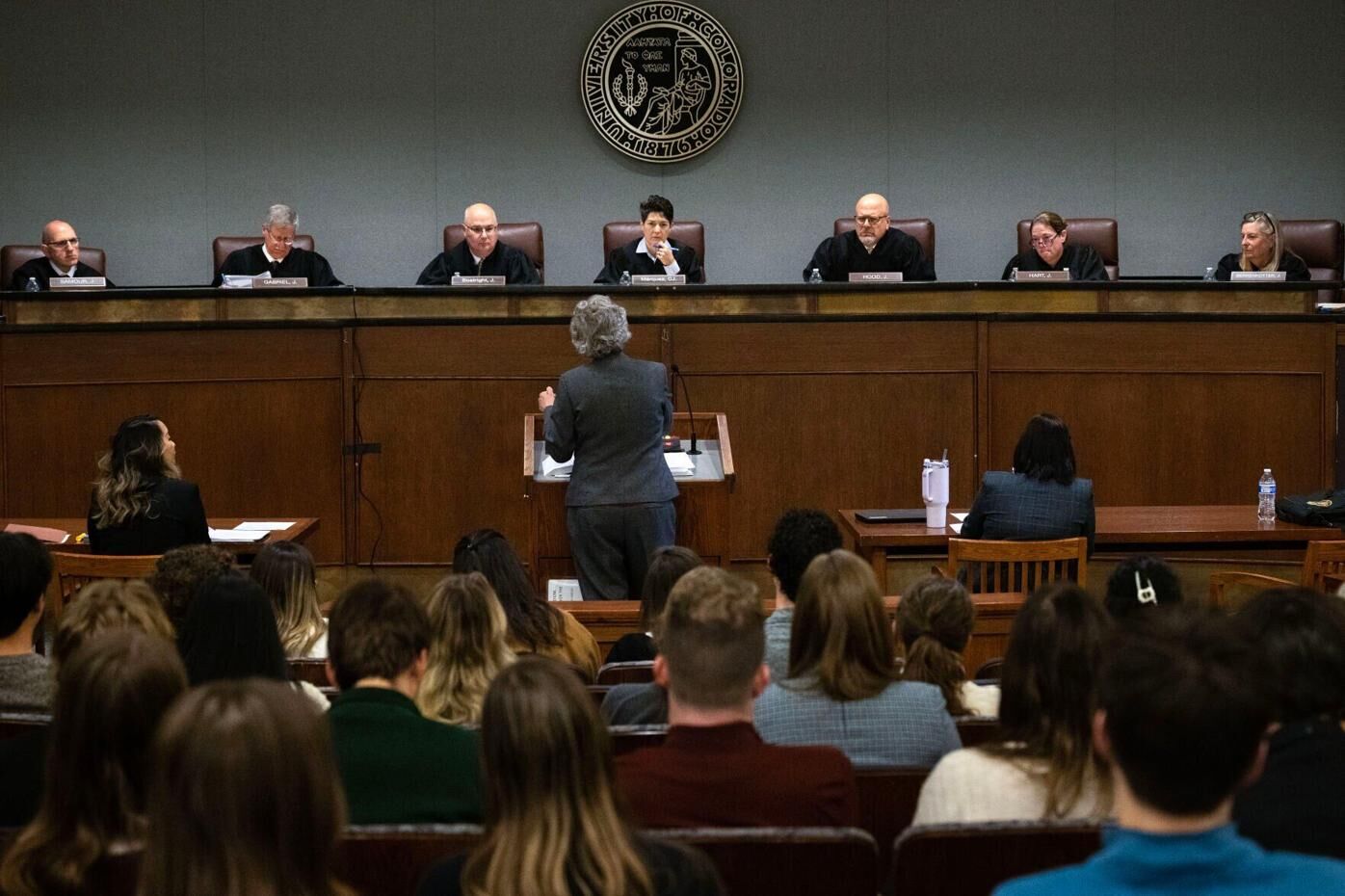Colorado justices sympathetic to defendant’s claim of speedy trial violation

Members of the Colorado Supreme Court appeared sympathetic on Wednesday to the argument that an El Paso County prosecutor made an unjustified decision to file a mid-case appeal, pushing the trial beyond the legal deadline and requiring dismissal of the charges.
The Supreme Court originally took an interest in Khristina Phillips’ ongoing misdemeanor prosecution in 2023, before ultimately declining to get involved. Only after her conviction did the justices decide to examine whether the prosecutor’s conduct resulted in a speedy trial violation.
Phillips stood accused of child abuse and operating a child care facility without a license. In Colorado, the government generally must bring criminal defendants to trial within six months of a not guilty plea as part of the constitutional right to a speedy trial. Violating that deadline results in dismissal of the charges and a bar on further prosecution.
The prosecution filed two mid-case — or “interlocutory” — appeals during Phillips’ proceedings. First, it challenged the trial judge’s decision to suppress part of Phillips’ videotaped interrogation with a detective. The decision was reversed and the time it took to resolve the appeal was excluded from the speedy trial deadline.
Then, at the beginning of trial, County Court Judge Steven Katzman balked at the prosecution’s intent to play the entirety of Phillips’ video interrogation. He ordered that only certain relevant clips be played. Under the belief that Katzman was again suppressing the interrogation, the prosecutor filed another interlocutory appeal in the middle of jury selection, triggering an end to the trial.
A district court judge reviewed the appeal and ultimately dismissed it. By that time, Phillips’ speedy trial deadline had passed. However, because Katzman concluded the second appeal was in “good faith,” the time it took to resolve the issue would be excluded — as it was with the first appeal — and the government would essentially receive an extension.
Phillips went to trial again in December 2023 and jurors convicted her. Phillips challenged her convictions, arguing once again that the prosecution’s improper second appeal resulted in a violation of the speedy trial deadline.
“The record demonstrates,” wrote then-District Court Judge David A. Gilbert in upholding the convictions, that the prosecution was “operating in good faith in deciding to file an interlocutory appeal on the belief that they had a strong claim that the Court acted without authority in excluding the evidence.”

But during oral arguments to the Supreme Court, the justices suggested it was unreasonable for the prosecutor to pursue a second interlocutory appeal. Although such appeals are fair game when a judge decides to suppress evidence, that was not what Katzman was doing.
“The county court judge had so much patience trying to explain repeatedly, ‘I’m not suppressing this evidence,'” said Justice Maria E. Berkenkotter. “There were, like, teaching moments at times. And the (prosecutor) was just not getting it.”
“There wasn’t a motion to suppress. It was the prosecution’s attempt to introduce something, and they didn’t get their way,” added Justice Brian D. Boatright.
Under the Supreme Court’s precedent, the time taken for an interlocutory appeal does not count against the speedy trial deadline if it is made in good faith, not intended to delay things and pertains to an important part of the prosecution’s case. Multiple justices wondered if the video evidence was substantial to the case after all.
“Your answer seems to be, ‘Well we should be allowed to present the case in the way that we think is going to be most effective, most compelling,'” said Justice William W. Hood III. “I’m not sure that is a satisfactory answer.”
Senior Deputy District Attorney Doyle Baker responded that testimony from the detective who interrogated Phillips would have been at risk of faded memory or cross-examination from the defense.
“Recordings are hard to manipulate. You see the unvarnished truth that’s going on,” he said. “From our perspective, being able to have Ms. Phillips’ own words about what happened and why it happened in that interview” was key.
Justice Richard L. Gabriel said he found it odd that the trial judges who previously handled the case ultimately believed the prosecutor had reasonable grounds to appeal.
“The trial court told the prosecutor repeatedly, three or four times, there’s no interlocutory appeal here. There’s no suppression order. And he did it anyway,” he said.
Justice Melissa Hart did not attend the arguments. She has been on a leave of absence since late October for “family and personal health reasons.“
The case is Phillips v. People.












